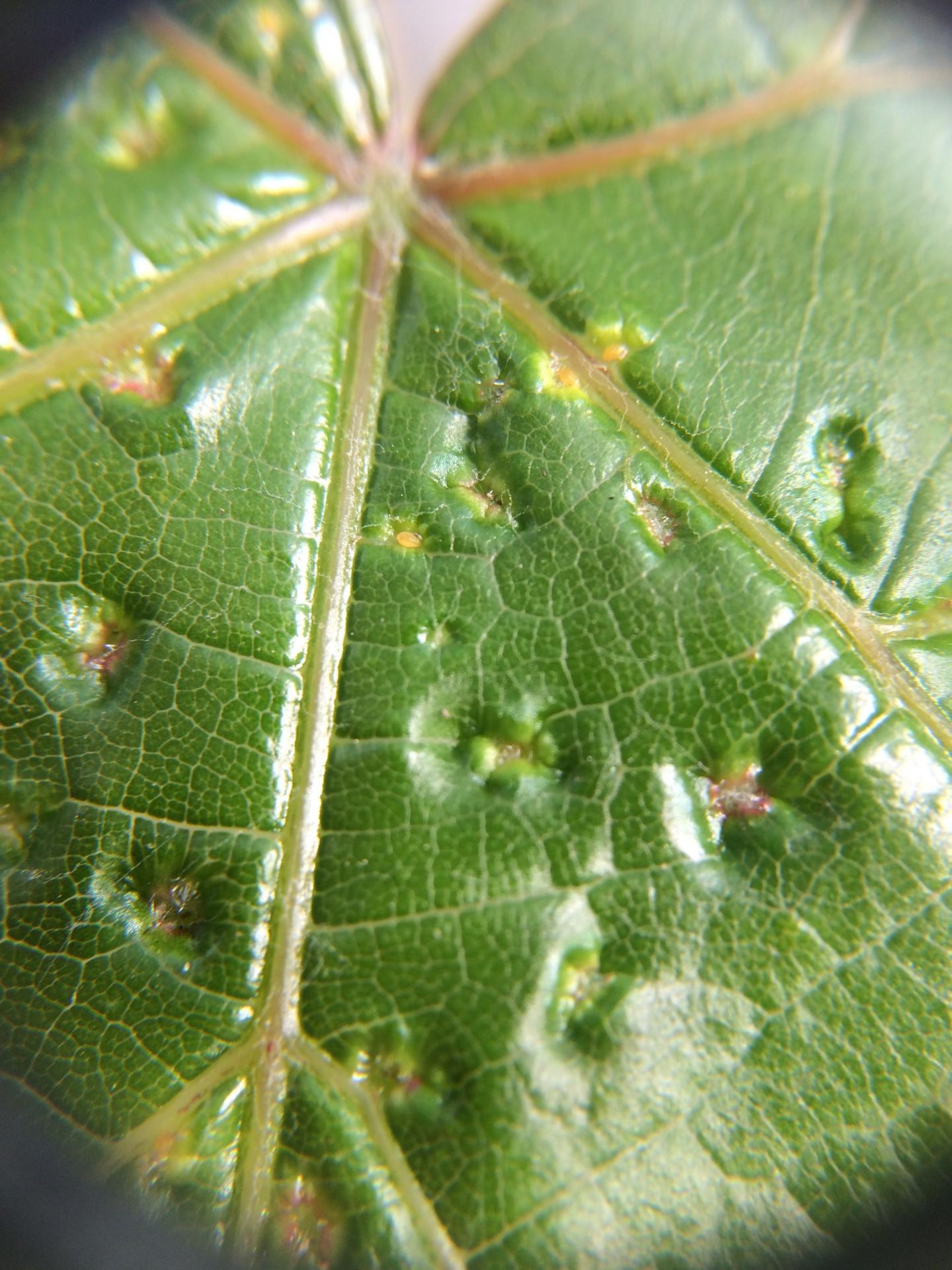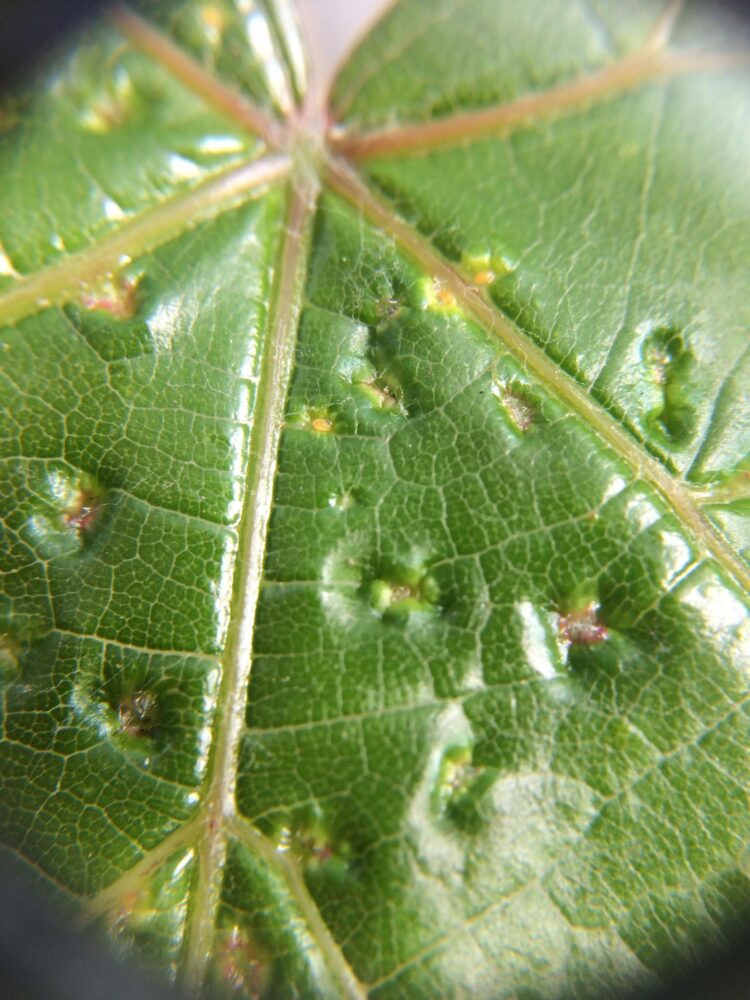Pest colonizes grape vines, forms root and leaf tumors, repels other predators

Credit: Paul Nabity/UCR
Following a decade-long effort, scientists have mapped out the genome of an aphid-like pest capable of decimating vineyards. In so doing, they have discovered how it spreads — and potentially how to stop it.
The research team’s work on the genome was published this past week in a BMC Biology paper. In it, they identified nearly 3,000 genes enabling the insect, phylloxera, to colonize and feed on grape vines by creating what are essentially nutritionally enhanced tumors. The insects live in and feed off of the structures they create.
“In effect, phylloxera creates its own refrigerator on the plant that it can feed from whenever it wants,” said Paul Nabity, an assistant professor of plant-insect ecology at UC Riverside. In addition to feeding the insects, these structures also protect them from attack by other parasites.
A heavy phylloxera infestation, as occurred in the Pacific Northwest last year, could cause grapevines to lose their leaves. If the infestation reaches the roots, the plants could die.
The tumor-like structures, known as galls, disrupt the vine’s ability to move nutrients and feed itself. They also create wounds in roots that make grapevines more susceptible to fungi and other pathogens, ultimately killing the vines.
Claude Rispe from the French National Institute for Agriculture, Food, and Environment led the research team, while Nabity helped identify how phylloxera secrete molecules that can change the immune system of grapevines.
“These molecules alter the plant’s defense systems and make it so that the plant doesn’t know it’s being attacked,” Nabity said.
When phylloxera was accidentally introduced to Europe in the 1860s, it nearly brought French viticulture to an end, causing vines to weaken and die. French and American scientists collaborated on a solution that is still used today.
Native North American grapevines co-evolved with phylloxera and are now resistant to it. However, most of the grapes we eat and drink are European varieties. As a result, growers have to graft North American roots onto their European grapevines to give them tolerance to this insect.
Though phylloxera are considered negative, not all of their effects on plants are necessarily bad. When they feed on plants and start creating gall structures, they change the cells in the leaf surface. Protective cells on the leaves become tiny pores called stomata, which allow movement of gases in and out of the cells.
“We think this is a means to reduce the negative impact on its host,” Nabity said. “Stomata can create carbon gains for plants that can offset how much the insects are taking from it.”
Now that the genes involved in the attack on non-native grapes have been identified, it may be possible to engineer phylloxera-resistant grapevines.
“Growers currently have to graft roots to make their plants viable,” Nabity said. “A lot of money and effort could be saved with pest-resistant rootstocks.”
###
Media Contact
Jules Bernstein
[email protected]
Original Source
https:/
Related Journal Article
http://dx.





